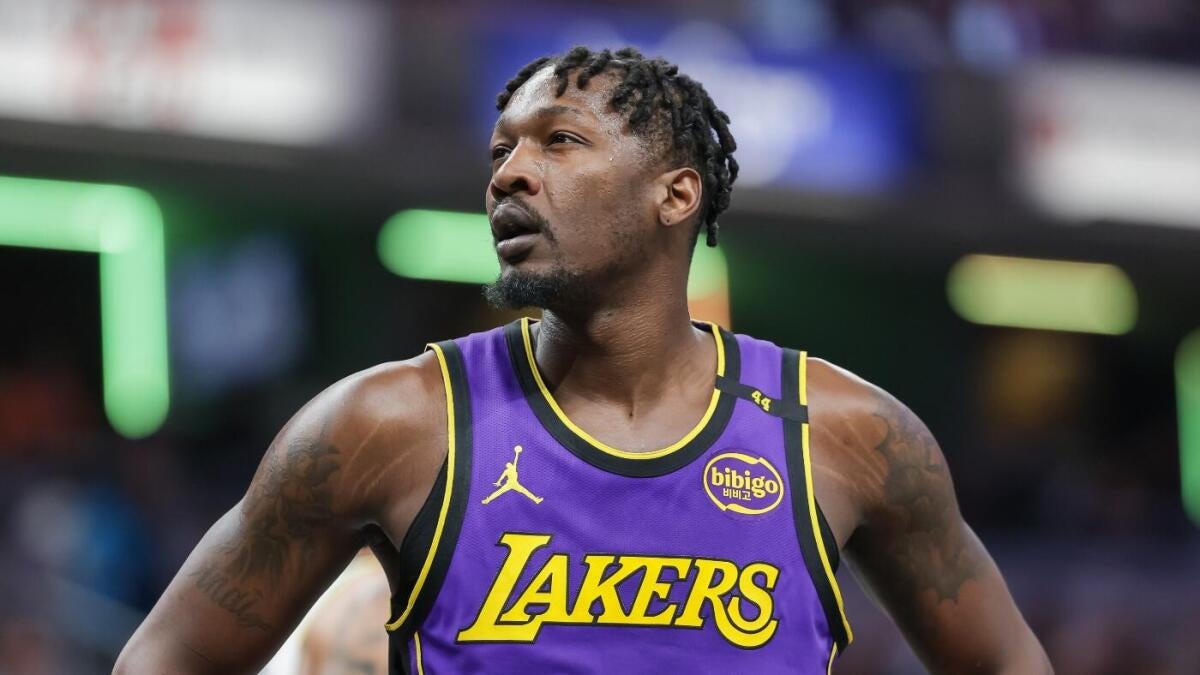Dorian Finney-Smith’s recent decision to sign a four-year, $53 million deal with the Houston Rockets marks a significant development in NBA free agency, reshaping both his career and the strategic trajectories of the teams involved. This move, confirmed by multiple reliable sources including ESPN’s Shams Charania, offers a rich case study in player valuation, team-building strategy, and the evolving landscape of the Western Conference.
Finney-Smith’s Career Context and Role
Dorian Finney-Smith has established himself as a quintessential “3-and-D” wing player, a role that has become increasingly valuable in the modern NBA. His ability to defend multiple positions while providing reliable three-point shooting makes him a versatile asset for any contending team. Prior to joining the Houston Rockets, Finney-Smith played a crucial role with the Los Angeles Lakers, where his defensive tenacity and perimeter shooting were instrumental in their success. His decision to opt out of a $15.4 million player option with the Lakers underscores his market value and his desire for a more stable and lucrative contract. Despite currently rehabilitating from an ankle injury, the Rockets appear confident in his ability to contribute both on and off the court, bringing not only his two-way skills but also veteran leadership to a young and developing roster.
Rockets’ Strategic Vision and Need
The Houston Rockets’ signing of Finney-Smith aligns with their shift from a rebuilding phase to a competitive window. With the acquisition of Kevin Durant and the development of young talent, the Rockets are positioning themselves as serious contenders in the Western Conference. Finney-Smith’s addition provides an immediate boost to their wing defense and floor spacing, two critical components for a team looking to complement Durant’s offensive prowess. The four-year, $53 million contract is a significant investment, signaling the organization’s commitment to building a well-rounded core capable of competing at the highest level.
By utilizing the non-taxpayer mid-level exception (NT-MLE) to secure Finney-Smith, the Rockets demonstrated savvy front office maneuvering. This move allows them to maximize cap space opportunities while strengthening their roster. Finney-Smith’s signing helps fill a perimeter void with a proven defender and shooter, adding balance and depth to a team that is rapidly evolving into a contender.
Impact on the Los Angeles Lakers
The departure of Finney-Smith leaves the Los Angeles Lakers with a notable gap on their wing. Known for his defensive versatility and connection with teammates, his exit creates both tactical and cultural challenges. The Lakers must now seek similar skill sets through trades, free agency, or internal development to maintain their defensive schemes and perimeter effectiveness. Additionally, Finney-Smith’s move to a Western Conference rival complicates the Lakers’ roster construction and competitive outlook. This loss magnifies the urgency for the Lakers to pursue complementary players who can offset his absence and help them remain competitive in a highly contested conference.
Financial and Contractual Implications
The four-year, $53 million contract averages approximately $13.25 million per season, reflecting Finney-Smith’s established value as a “3-and-D” specialist with veteran experience. This deal is notably more lucrative than his previous player option, providing long-term security for him while offering the Rockets contractual control during his prime athletic years. The contract fits within Houston’s capped budget framework and illustrates the evolving market rates for players who combine defensive acumen with three-point shooting. It also highlights how teams with cap flexibility can leverage exceptions to strengthen key roster areas without overcommitting in luxury tax penalties.
Broader NBA Free Agency Trends Illustrated
Finney-Smith’s signing is emblematic of broader themes in NBA roster construction. Teams are increasingly prioritizing versatile wings who can guard multiple positions and space the floor to complement superstar scorers. The contract length and value also mirror a market trend favoring longer-term deals for reliable role players, balancing veteran stability with financial prudence. Moreover, his move from a veteran-laden Lakers squad to a retooling Rockets team underscores the dynamic nature of player movement, where fits and organizational trajectories influence decisions as much as raw salary figures.
Conclusion: A Win-Win for Rockets and Finney-Smith
Dorian Finney-Smith’s transition to the Houston Rockets on a four-year, $53 million deal represents a compelling synergy of player ambition and team strategy. For Finney-Smith, it secures financial stability and a leading role on a burgeoning contender. For the Rockets, it provides a critical piece to their emerging puzzle, boosting defensive toughness and shooting around a superstar core. This signing encapsulates the modern NBA’s blend of tactical versatility, financial ingenuity, and strategic rebuilding, positioning both Finney-Smith and the Rockets for exciting chapters ahead. The Lakers’ loss shapes a narrative of competitive pressures and roster recalibration, emphasizing how single strategic decisions ripple across the league’s competitive balance. Ultimately, this agreement exemplifies how calculated risk-taking in free agency can redefine team identities and player legacies alike.

